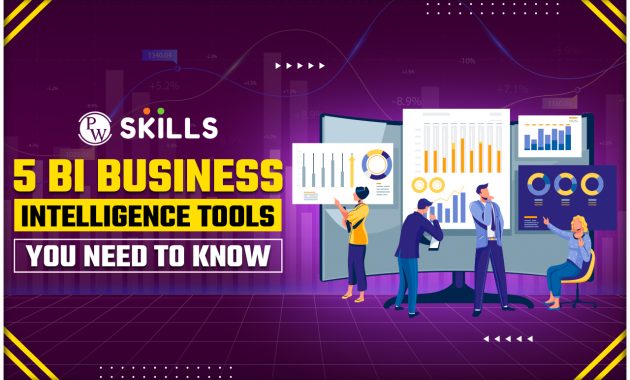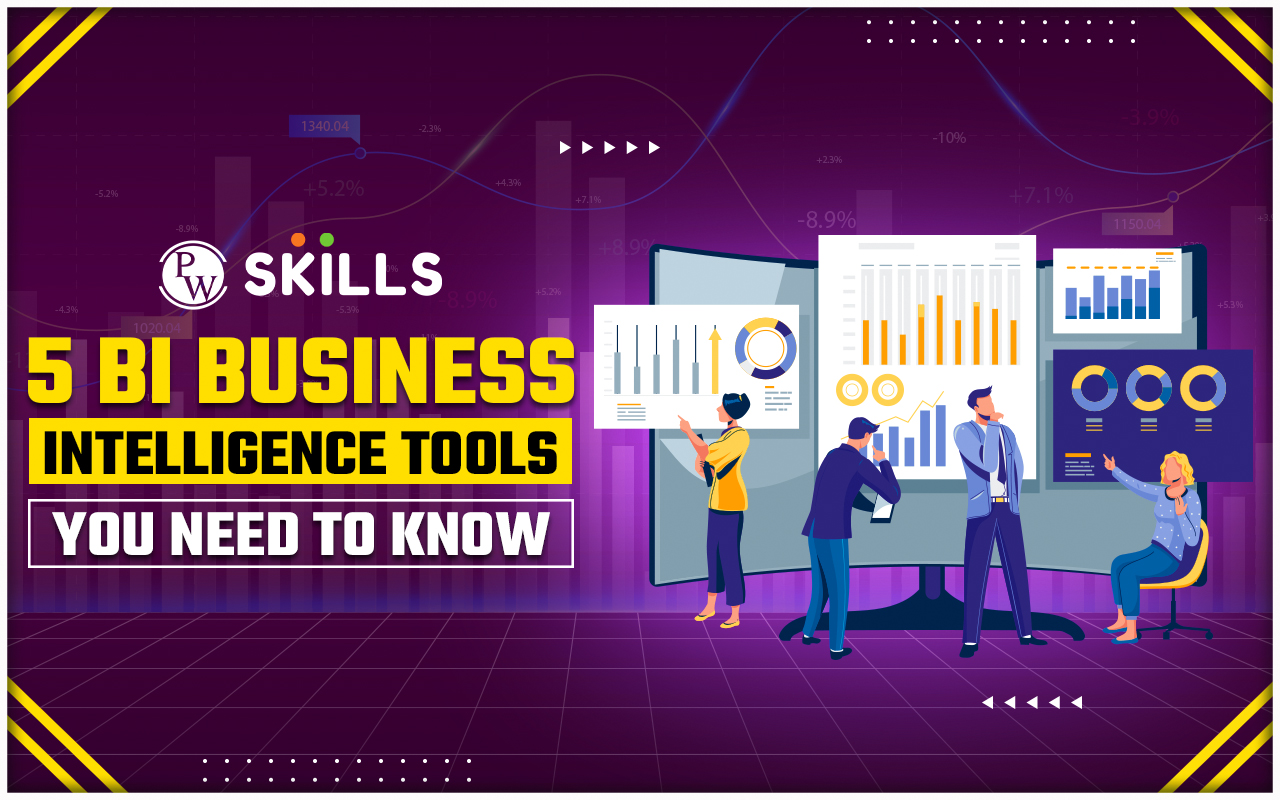
Boost Your Growth with 9 Business Intelligence Tools You Need to Know
In today’s data-driven landscape, businesses of all sizes are grappling with an unprecedented volume of information. The ability to effectively analyze this data and extract actionable insights is no longer a luxury; it’s a necessity. This is where Business Intelligence (BI) tools come into play. They empower organizations to make informed decisions, optimize operations, and ultimately, boost their growth. This article will delve into nine essential business intelligence tools that you need to know.
The core function of business intelligence tools is to transform raw data into digestible and understandable formats. This transformation enables businesses to identify trends, patterns, and anomalies. These insights then inform strategic planning, resource allocation, and performance monitoring. By leveraging these tools, companies can gain a competitive edge, improve efficiency, and drive profitability. The proper business intelligence tools can revolutionize how you operate.
The Rise of Business Intelligence
The evolution of business intelligence tools has been remarkable. Early BI systems were often complex and expensive, requiring specialized expertise. However, with advancements in technology, particularly cloud computing and artificial intelligence, BI tools have become more accessible, affordable, and user-friendly. This democratization of data analysis has opened doors for smaller businesses to compete with larger enterprises. The market for business intelligence tools is booming.
The benefits of using business intelligence tools are numerous. They include improved decision-making, enhanced operational efficiency, better customer understanding, increased revenue, and cost reduction. Furthermore, BI tools facilitate data-driven cultures, encouraging collaboration and innovation across departments. Investing in the right business intelligence tools is a strategic move for any forward-thinking organization.
Top Business Intelligence Tools to Consider
Here’s a breakdown of nine essential business intelligence tools, each offering unique features and capabilities. This list is not exhaustive, but it represents a solid starting point for exploring the world of data analytics.
Tableau
Tableau is a leading data visualization and business intelligence tool known for its intuitive interface and powerful features. It allows users to connect to various data sources, create interactive dashboards, and share insights with ease. Tableau’s drag-and-drop functionality makes it accessible to users with varying levels of technical expertise. It is widely used by businesses across various industries. Tableau is one of the most popular business intelligence tools.
Power BI
Developed by Microsoft, Power BI is a comprehensive business intelligence tool that integrates seamlessly with other Microsoft products. It offers a wide range of data connectors, data transformation capabilities, and advanced analytics features. Power BI is particularly popular among businesses that already use Microsoft products. Its affordability and user-friendly interface make it an attractive option for many organizations. Power BI is a robust business intelligence tool.
Qlik Sense
Qlik Sense is another powerful business intelligence tool that focuses on data discovery and self-service analytics. Its associative engine allows users to explore data relationships and uncover hidden insights. Qlik Sense offers a modern, web-based interface and supports a wide range of data sources. It’s designed to be intuitive and empower users to explore their data independently. Qlik Sense is a great choice for data exploration.
Looker
Looker, now part of Google Cloud, is a business intelligence tool that emphasizes data modeling and collaboration. It allows users to create a single source of truth for their data, ensuring consistency and accuracy. Looker’s robust features make it a great choice for large enterprises with complex data needs. Looker is a strong business intelligence tool for data governance.
Sisense
Sisense is a business intelligence tool that focuses on ease of use and speed of deployment. It allows users to quickly build and deploy dashboards and reports, even with large datasets. Sisense offers a variety of data connectors and supports in-memory and data virtualization technologies. Its focus is on providing fast insights. Sisense is a great option for rapid data analysis.
Domo
Domo is a cloud-based business intelligence tool that provides a unified platform for data integration, visualization, and collaboration. It offers a wide range of features, including data connectors, mobile access, and real-time dashboards. Domo is designed to be a comprehensive solution for all of your data needs. Domo is a versatile business intelligence tool.
ThoughtSpot
ThoughtSpot is a business intelligence tool that uses natural language processing (NLP) to enable users to ask questions about their data in plain English. This makes it easy for anyone to explore data and gain insights without needing to learn complex query languages. ThoughtSpot is ideal for users who want a conversational approach to data analysis. ThoughtSpot is a modern BI solution.
Zoho Analytics
Zoho Analytics is a self-service business intelligence tool that is part of the Zoho suite of business applications. It offers a user-friendly interface and a wide range of features, including data connectors, data visualization tools, and collaboration features. Zoho Analytics is a good option for businesses already using Zoho products. Zoho Analytics is a cost-effective business intelligence tool.
Microsoft Excel
While not solely a business intelligence tool, Microsoft Excel remains a powerful tool for data analysis and visualization. Its familiarity and widespread use make it an accessible option for many businesses. Excel’s data analysis features, such as pivot tables and charts, can provide valuable insights. Although it may not have all the features of dedicated BI tools, Excel is a valuable tool. Excel is a fundamental data analysis tool.
Choosing the Right Tool for Your Business
The best business intelligence tool for your organization depends on several factors, including your business size, data sources, technical expertise, and budget. Consider your specific needs and goals when evaluating different tools. Start by identifying your key performance indicators (KPIs) and the data you need to track. Then, research the features and capabilities of each tool and compare their pricing and support options. Consider a trial period before committing to a purchase.
Implementation and Best Practices
Once you’ve chosen a business intelligence tool, it’s important to implement it effectively. This involves data integration, data modeling, and dashboard design. Ensure that your data is clean, accurate, and well-organized. Design dashboards that are visually appealing and easy to understand. Train your employees on how to use the tool and interpret the data. Foster a data-driven culture within your organization.
Here are some best practices to keep in mind:
- **Define Clear Objectives:** Identify your goals and the questions you want to answer with your data.
- **Data Quality is Key:** Ensure the accuracy and reliability of your data.
- **Focus on Visualization:** Use clear and concise visualizations to communicate your findings.
- **Promote Collaboration:** Encourage data sharing and collaboration across departments.
- **Provide Training:** Train your employees on how to use the tool effectively.
The Future of Business Intelligence
The future of business intelligence tools is bright, with continued advancements in areas such as artificial intelligence, machine learning, and natural language processing. We can expect to see more automated insights, predictive analytics, and personalized dashboards. The integration of BI tools with other business applications will also become more seamless. This will empower businesses to make even more data-driven decisions. The future is all about data.
By understanding the capabilities of these business intelligence tools, businesses can equip themselves with the knowledge and resources to thrive in the data-driven era. Embrace the power of data, and unlock your organization’s full potential. The right tools can transform your business. Consider these tools for your business’s growth.
[See also: How to Choose the Right BI Tool for Your Business]
[See also: The Impact of AI on Business Intelligence]
[See also: Data Visualization Best Practices]

